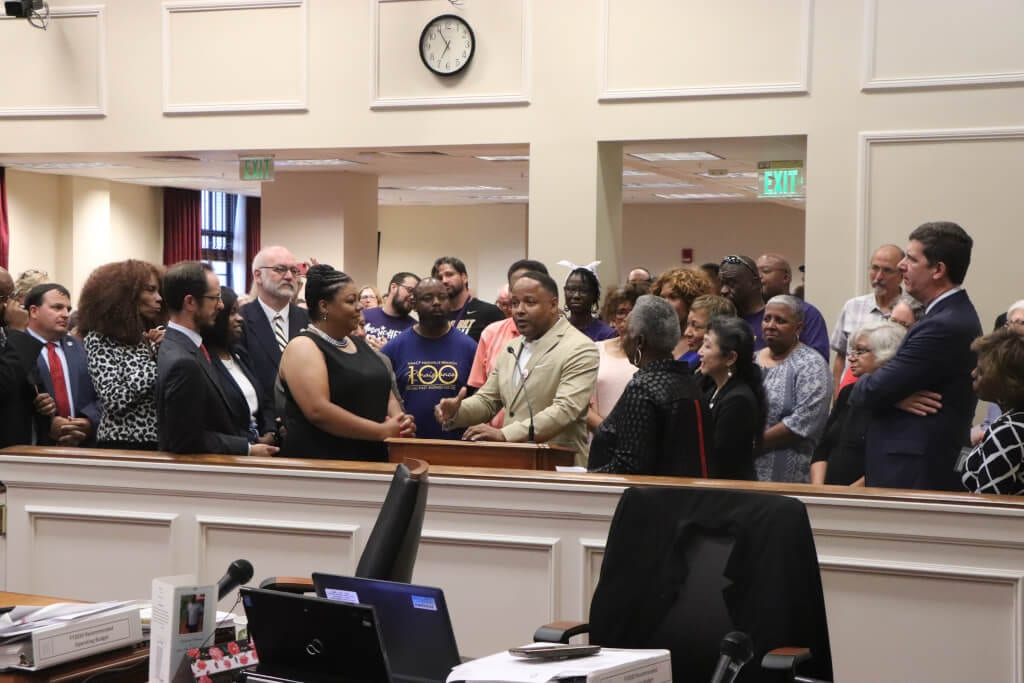NASHVILLE, TN – In a vote that held the chambers momentarily stunned Tuesday night the city council failed to pass a substitute budget that would have given Metro schools $50 million, city employees a 3% cost of living raise, and put $6 million into WeGo, Metro’s bus service. The vote was 20 in favor, 18 against, and 1 abstention. Councilwoman Tanaka Vercher’s substitute budget needed 21 votes.
Failing to get one more “Yes” vote means Mayor Briley’s budget has become law.
For the first time in its history the city council considered four substitute budgets. Another first: the council failed to pass any of them. The four budgets were alternatives to Mayor Briley $2.3 billion budget. Council members Glover, Mendez, and Vercher wanted to raise Metro workers salaries and they proposed property tax increases to pay for them. Councilman Russ Pulley withdrew his budget. So did Councilman Bob Mendez.
Councilman Steve Glover proposed a 3.5% tax hike to give Metro employees a 6% raise. He said the council promised them 3% last year and they didn’t get it. Glover relied on $30 million from privatizing city parking in his substitute budget. It failed 35-4.
During more than three hours of debate it seemed that Vercher’s compromise budget was headed for approval. One after another council member rose to speak in its favor. By hiking Metro’s property tax rate almost 16% the city would have $150 million more in revenues.
Vercher, who is chair of the Finance and Budget Committee, held several meetings and met with stakeholders before adding funds for schools, library, WeGo, adding police and fire jobs, extending hours at Metro community centers, and cleaning up streams.
Councilman DeCosta Hastings was the first to speak against Vercher’s substitute budget. He didn’t like teachers getting a 4% raise but not first-responders. He also worried his constituents would suffer if their taxes went up 16%. He ended up abstaining.
At Large Councilman John Cooper said in the last four years city has raised revenues by $350 million, enough to fund Vercher’s priorities. But he said he wouldn’t vote for a tax increase without first making changes in how the city manages its money.
“I am convinced that we can fund our real priorities with a strong and realistic management approach,” Cooper said. He said raising taxes won’t cure poor fiscal management.
“We should not default to a property tax increase until we get all the management savings and additional city revenues that we should be getting. Tourism development needs to carry a larger share of their own costs. We shouldn’t have large surpluses in some areas of government and then pass a property tax increase,” he said.
At the beginning of the city council meeting Tuesday night there was a presentation and reading of a resolution recognizing the 100thanniversary of the NAACP.


